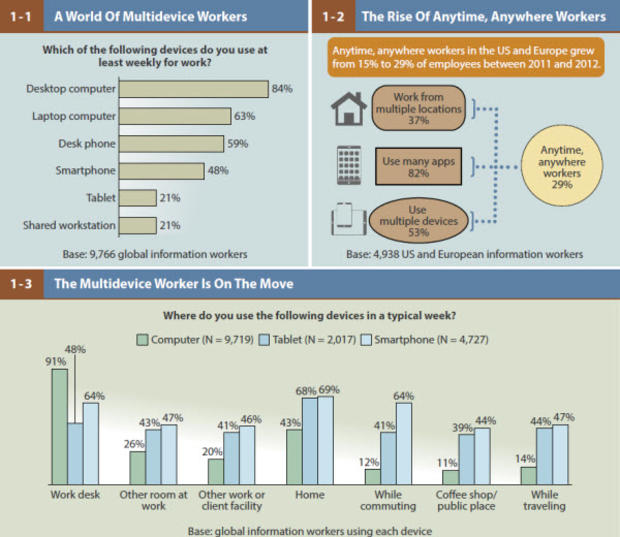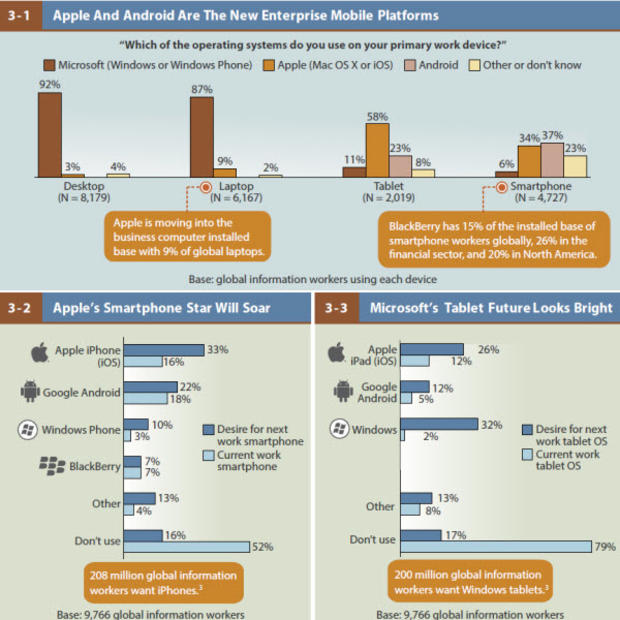More want Window tablets for work than iPad
(MoneyWatch) A recent study by analysis firm Forrester suggests that while Apple (AAPL) mobile equipment has made big strides in large corporations over the last few years, users are showing quickly growing interest in Microsoft (MSFT) Windows 8 tablets. That certainly doesn't knock Apple out of the picture, but it does raise a question about how open the race for the mobile business office might still be.
- Phone makers seek alternative to Android
- Microsoft's advances in mobile may hit a wall
- Windows RT and Surface: Microsoft's big mistake?
According to a study of more than 9,700 information workers worldwide, many of them use a combination of computer, tablet, and smartphone in a changing set, depending on where they're working at the time. Here's a chart from Forrester that shows the breakouts.

According to Forrester, there will be 905 million tablets in people's hands by 2017, with many of them using the devices for work. The interesting thing is that when it comes to work, what people are looking for doesn't quite match what you might expect from market shares. Here's another Forrester chart:

On the smartphone front, Apple is still ahead. In a work setting, versus broader consumer world, the numbers of people using iPhones versus an Android phone were close to even. That changes when you ask users what they want to use in the future. A third of them say an iPhone, while 22 percent ask for Android. Windows Phone is at 10 percent, while BlackBerry is at 7 percent. Furthermore, although 52 percent didn't currently use a smartphone for work, only 16 percent wanted to continue avoiding the devices. This breakout contrasts strongly with Android's global lead in the consumer market.
More interestingly, when looking at tablets, about 32 percent wanted to have a Windows tablet for their next one, while a smaller but still significant 26 percent wanted an iPad and 12 percent looked for an Android tablet.
Only 2 percent already had Windows tablets (which have been available, primarily for niche vertical industry needs, for years). Apparently Microsoft has been effective in capturing the attention of people at work, a critical traditional market segment for the company.
Image: Microsoft
Erik ShermanErik Sherman is a widely published writer and editor who also does select ghosting and corporate work. The views expressed in this column belong to Sherman and do not represent the views of CBS Interactive. Follow him on Twitter at @ErikSherman or on Facebook.
Twitter FacebookDisclaimer: The copyright of this article belongs to the original author. Reposting this article is solely for the purpose of information dissemination and does not constitute any investment advice. If there is any infringement, please contact us immediately. We will make corrections or deletions as necessary. Thank you.





![Apple iWatch: The next big thing? [Update]](/uploads/images/20230727/6e196e1ffb9c38e233.png)

